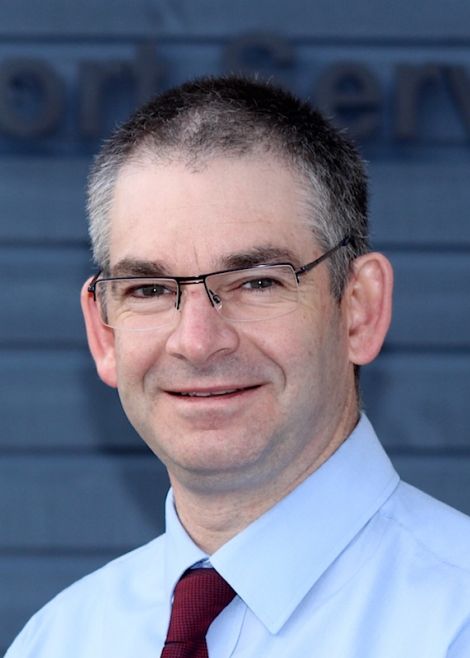News / Dementia service needs urgent improvement
A MAJOR effort to transform Shetland into a dementia friendly community over the next three years has received enthusiastic backing from local councillors.
This week Shetland Islands Council’s social services committee put its weight behind an action plan to improve dementia provision in the isles as a matter of urgency after reading a highly critical report on the issue.
A working group is being set up immediately to examine what is going wrong with the local dementia service and devise a strategy to keep sufferers living at home for as long as possible.
Specialists from Stirling University found serious problems in the way the disease that affects an estimated 400 folk in the isles is handled.
At the same time Professor June Andrews and Mark Butler of Stirling’s internationally-acclaimed Dementia Services Development Centre said Shetland had an opportunity to become a leader in the field.
The consultants praised the islands’ new specialist system for diagnosing the illness, which includes remote video conferencing with an old age psychiatrist. It has led to 190 Shetland folk being diagnosed with dementia, including around 70 per cent of care home residents, though there are thought to be more than twice that many in the isles with the disease.
While this has been held up as an international standard to be copied elsewhere, the rest of the service left much to be desired, the report said.
During three days of face to face talks last September with “huge” number of health and social care workers, carers and sufferers, the consultants found multiple problems around leadership, training and professional relationships.
Plans to invest in Lerwick’s Viewforth care home as a specialist centre for dementia were ill conceived and a waste of money. Other care centres in the isles had just as much expertise in the field, they said.
Become a member of Shetland News
Instead the council and health board should be raising awareness throughout the community to remove the negative stigma surrounding the disease and support people to remain in their own home.
They discovered a disturbing lack of awareness about the support available to keep people at home, with even local GPs believing a dementia diagnosis automatically meant being moved to a care centre.
They suggested having a single training hub to avoid the fragmented skills provision currently being delivered across the service.
They also proposed funders, including Shetland Charitable Trust, be approached to provide money to retrofit houses to allow people to remain at home.
One urgent commitment from the council is to find a place on the isles so people going through acute periods of crisis do not have to leave the islands.
The only existing facility is in Ward Three at Lerwick’s Gilbert Bain Hospital, which the consultants said was unsuitable.
Community health and social care director Simon Bokor Ingram said work was already underway to make Shetland a leading light for dementia in Scotland, but admitted “there is an awful lot of work to do”.
He said there was money to provide training within the NHS and the council, but it was important to provide training to other services like the police, the fire brigade and beyond.
“We have to look at how we can cascade this down into the community,” he said.
Dementia nurse consultant Alan Murdoch said care homes including Viewforth should be for “end of life” rather than long term care.
“If people are going to have the best life, they need to be in their own home. Even putting them into a sheltered house is going to affect their memory,” he said, adding this was a cheaper option than putting them into a care centre.
Councillors acknowledged the report made “uncomfortable reading”, but they welcomed its findings including comments from staff that they felt unsupported by politicians and senior management.
Shetland North member Alastair Cooper said: “We have to make sure this is implemented to the highest level possible because that way it shows that we care.
“But we have to respect the fact that there is folk that think we don’t care, whereas as individuals we all care passionately about folk in the community.”
Social services committee chairman Cecil Smith said discussions were already underway to find a four bed unit for people going through acute short term crises, but added that specialist training would also be required.
There are also plans to develop an online directory to highlight the services on offer, which have improved recently with the involvement of Alzheimer Scotland.
Concluding their report, Andrews and Butler said that successfully tackling dementia could have multiple spin offs for the isles.
“We recognise that dementia is only one of many challenges facing Shetland,” they said.
“However getting dementia right could not just be of importance in itself but could also provide a way forward on other complex social challenges and long term conditions on the island.
“At one level Shetland is well on its way to becoming a dementia friendly community with some clear positive signs and innovative practices.
“However in the absence of a clear public narrative on the direction services are taking, there will be a missed opportunity.”
Their report will be discussed by NHS Shetland next month.
Become a member of Shetland News
Shetland News is asking its many readers to consider paying for membership to get additional features and services: -
- Remove non-local ads;
- Bookmark posts to read later;
- Exclusive curated weekly newsletter;
- Hide membership messages;
- Comments open for discussion.
If you appreciate what we do and feel strongly about impartial local journalism, then please become a member of Shetland News by either making a single payment, or setting up a monthly, quarterly or yearly subscription.























































